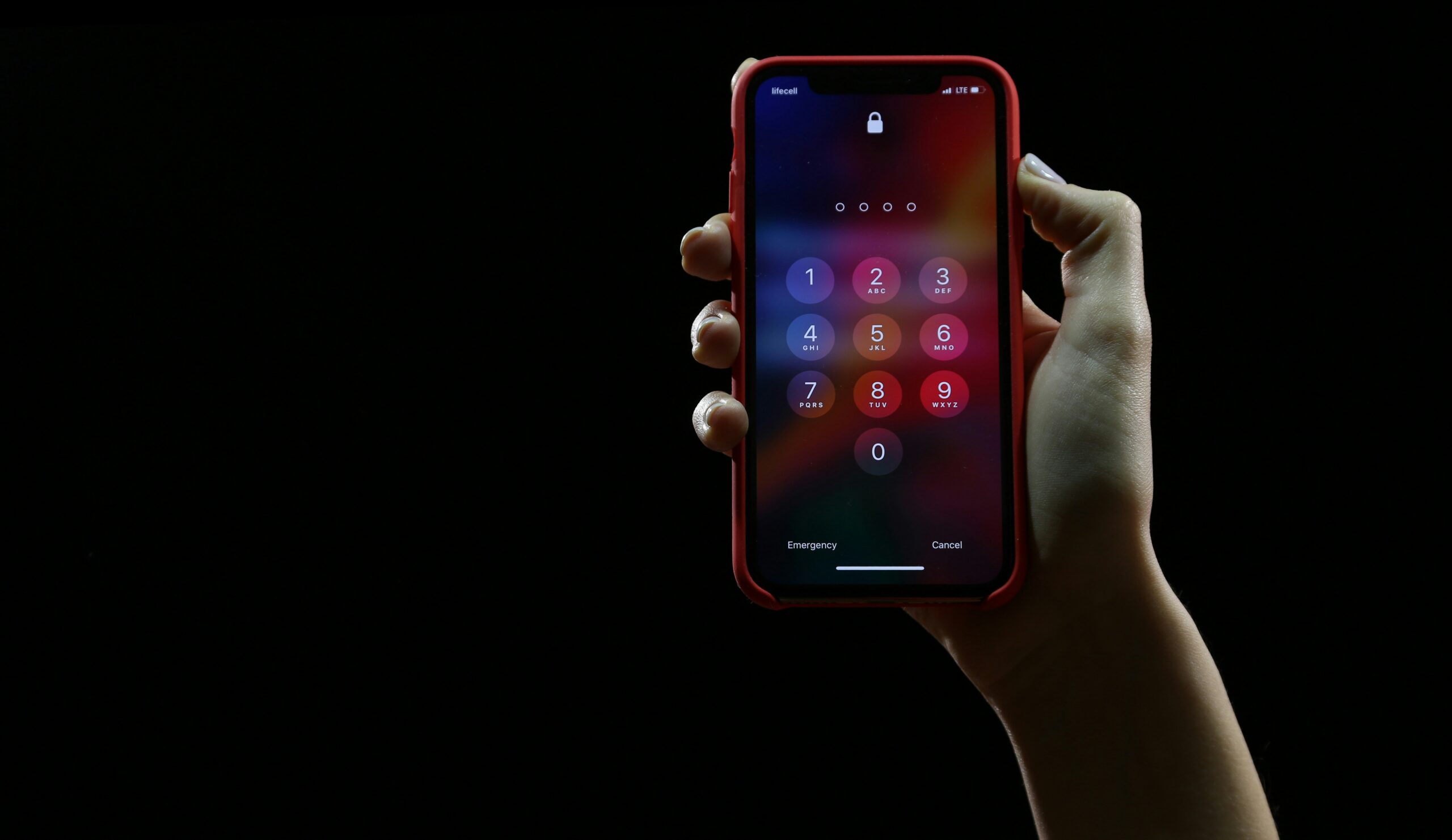Understanding Digital Health Jobs: Scope, Evolution, and Skills
Explore the scope, evolution, and essential skills of digital health jobs in modern healthcare.
Overview
Digital health jobs represent crucial roles that harness technology to elevate medical services and enhance patient outcomes. With technological advancements in healthcare, a substantial growth trajectory is anticipated by 2025. Are you aware of the increasing demand for skilled professionals in areas such as:
- Telehealth coordination
- Health informatics
- Data analysis
These roles are not just important; they are essential for integrating electronic solutions into medical systems and enhancing overall healthcare delivery. As the landscape evolves, embracing these opportunities is vital for future success.
Introduction
The landscape of healthcare is undergoing a revolutionary transformation, driven by the integration of technology and data analytics. This evolution presents both challenges and opportunities, particularly in the realm of digital health jobs, which are emerging as pivotal roles in reshaping how care is delivered and experienced by patients. Positions such as health informatics specialists and telehealth coordinators are not only vital for improving healthcare efficiency but are also essential in building trust between patients and the digital tools they use.
As we look towards the future, the digital health job market is projected to expand significantly by 2025. This growth underscores the importance of understanding the evolution of these roles, the skills required, and their impact on patient outcomes. For job seekers and healthcare organisations alike, recognising these dynamics is crucial for navigating the complexities of this rapidly changing landscape. What strategies will you employ to stay ahead in this transformative era?
Define Digital Health Jobs: Scope and Importance
Digital health jobs encompass a diverse array of roles that leverage technology to enhance medical services and improve individual outcomes. Roles such as medical informatics specialists, telehealth coordinators, and data analysts are crucial for the effective integration of electronic solutions within medical systems. The importance of digital health jobs has escalated, particularly as medical organisations increasingly adopt electronic tools to boost efficiency, accessibility, and patient engagement.
By 2025, the electronic wellness job market, which includes digital health jobs, is poised for significant growth, driven by the ongoing technological transformation in medical services. Recent statistics reveal that 83% of consumers trust their medical providers with electronic data, highlighting the critical need for skilled professionals who can address privacy concerns and foster trust. In contrast, only 45% extend that trust to technology firms, indicating a gap that online wellness roles must bridge.
Successful implementations of digital health jobs within medical organisations have demonstrated a positive impact on outcomes for individuals. For example, the rise of telehealth has not only broadened access to care but also enhanced patient satisfaction and engagement. Experts assert that solutions aligned with provider reimbursement models possess a structural advantage in the market, ensuring sustainability and effectiveness in service delivery.
Current trends reveal an increasing focus on roles that facilitate the adoption of innovative technologies, such as machine learning and data analytics, to improve decision-making processes in the medical field. Case studies indicate that addressing initial consumer hesitations through thoughtful design choices is vital for maintaining trust and engagement in online wellness initiatives. As the medical landscape evolves, the demand for skilled professionals in digital health jobs remains paramount, positioning this field as a focal point for job seekers and employers alike.
Trace the Evolution of Digital Health Jobs: Historical Context
The evolution of digital wellness jobs has been a significant development since the 1960s, marked by the introduction of electronic health records (EHRs). This foundational shift laid the groundwork for modern informatics, transforming medical service delivery and giving rise to diverse job roles that focus on managing and utilising health data. With the rapid advancement of technology, particularly the rise of the internet and mobile devices, the landscape of medical services has undergone a remarkable transformation.
In the 1990s, telemedicine emerged, paving the way for remote patient monitoring and virtual consultations. This innovation fundamentally altered the job market within the medical field. By 2022, the wellness analytics segment generated an impressive revenue of USD 31,357.5 million, underscoring the growing importance of data in medical decision-making and the increasing demand for specialised roles in this area. The integration of artificial intelligence (AI) and big data analytics has further accelerated this demand, reflecting a decisive shift towards data-driven practises.
Historical case studies illustrate this evolution, particularly the rapid growth of the mobile wellness (mWellness) market. This sector is expected to expand swiftly due to advancements in telecommunications and the proliferation of wellness-related applications. The success of various mHealth applications has notably enhanced access to medical services, especially for individuals with chronic conditions. This trend highlights the pressing need for skilled professionals in this domain. However, organisations face significant challenges in their pursuit of becoming truly data-driven, including data silos, a shortage of skilled personnel, and resistance to change.
As organisations strive to harness their data effectively, they must understand what data they possess, where it is stored, and how to leverage it for optimal outcomes. This necessity is reshaping the job market, creating new opportunities in digital health jobs for those who possess the requisite skills. The ongoing evolution of digital health jobs signifies not merely a trend but a fundamental shift in how services are provided and managed. It calls for a workforce adept in both technology and care. The influence of electronic health records on medical jobs has been profound, resulting in the emergence of positions centred on data management, client engagement, and telehealth services, thereby enhancing the overall efficiency and effectiveness of medical delivery.
Dr. Eric Topol aptly emphasises the transformative nature of this evolution, stating, “The crowd will see you now, the patient will see you now, Dr. Google will see you now, the robot will see you now, the avatar will see you now. Everyone will see you now. Everyone but the doctor.” This perspective underscores the seismic change in medical service delivery and the role of technology in generating new job opportunities.
Explore Key Roles in Digital Health: Job Titles and Responsibilities
Key roles in digital health jobs encompass a variety of responsibilities that are essential for effectively integrating technology into medical care. These roles include:
- Health Informatics Specialist: Responsible for managing medical information systems, these specialists ensure data accuracy and security, playing a pivotal role in enhancing care for individuals and improving system efficiency. Their expertise is essential as medical systems increasingly depend on precise data for decision-making. Significantly, doctoral programmes in health informatics may require three to five years to finish, emphasising the extensive training necessary for this role.
- Telehealth Coordinator: This position is essential in enabling virtual care services, serving as a link between individuals and medical providers. Telehealth coordinators improve access to care by facilitating communication and ensuring that individuals receive timely support, particularly in remote settings. Successful implementations of telehealth coordinators have demonstrated enhanced patient satisfaction and increased access to medical services, showcasing the transformative potential of these roles in modern medical settings.
- Data Analyst: Data analysts in the medical field focus on analysing vast amounts of medical data to identify trends and improve patient outcomes. Their insights aid decision-making processes, allowing organisations in the medical sector to execute data-driven strategies that improve operational efficiency.
- Product Manager for Digital Solutions: Tasked with supervising the development and execution of electronic wellness solutions, product managers guarantee that these technologies fulfil user requirements and adhere to regulatory standards. Their role is essential in driving innovation and ensuring that electronic wellness products are effective and user-friendly. Additionally, the Certified Associate in Healthcare Information and Management Systems (CAHIMS®) certification acts as a pathway for expanding and diversifying industry knowledge for entry-level professionals or those newer to medical information and management systems, as noted by Chris Papesh, a lecturer in Administration and Policy. Moreover, User Experience (UX) and Usability Specialists in Health Informatics concentrate on designing intuitive medical applications. By ensuring that medical technologies are user-friendly and efficient, they enhance user satisfaction and improve the overall adoption of information systems, which is essential for digital health jobs. Each of these positions contributes significantly to advancing technology in medicine, ultimately leading to improved patient care and operational efficiency. The evolving environment of digital health jobs in 2025 highlights the significance of these positions as they adapt to meet the shifting demands of the medical sector.
Identify Essential Skills for Digital Health Careers: Qualifications and Competencies
Essential skills for digital health careers encompass a range of competencies that are increasingly vital in today’s evolving healthcare landscape:
- Digital Literacy: Mastery of digital tools and platforms is foundational across all roles in this sector. As the medical field becomes more technology-driven, professionals must be adept at utilising these resources effectively.
- Data Analysis: The ability to interpret and analyse medical data is essential, especially for roles like data analysts and informatics specialists. This skill allows professionals to gain insights that can improve client care and operational efficiency.
- Communication Skills: Strong communication abilities are essential for coordinating care and collaborating within multidisciplinary teams. Effective communication ensures that all stakeholders are aligned and informed, which is crucial for successful project outcomes.
- Project Management: Proficiency in project management is necessary for implementing electronic wellness solutions. This includes planning, executing, and overseeing projects to ensure they meet objectives and deliver value.
- Clinical Knowledge: A solid understanding of healthcare processes and patient needs significantly enhances the effectiveness of professionals in the electronic wellness field. This knowledge allows them to design solutions that are user-centric and aligned with clinical realities.
The need for electronic wellness solutions is illustrated by Emirates’ effort to provide inflight telemedicine on 300 aircraft, emphasising the increasing importance of these skills. Developing these competencies will equip candidates to meet the demands of digital health jobs in the landscape of 2025 and beyond. As highlighted in recent studies, medical practitioners who possess skills such as user-centric design and data analytics are better positioned to pursue diverse career opportunities, including digital health jobs like Clinical Informatics Specialists and Digital Health Entrepreneurs. Dr. Eric Topol aptly noted, “The crowd will see you now, the individual will see you now, Dr. Google will see you now, the robot will see you now, the avatar will see you now.” Everyone will see you now. Everyone but the doctor, emphasising the need for professionals to adapt to this evolving landscape. This alignment of skills with industry needs is essential for enhancing care and healthcare delivery, as demonstrated by the positive ratings of the getUBetter app, where 75% of users rated it as ‘very good’, ‘good’, or ‘acceptable’. Furthermore, the case study titled “Key Skills for Healthcare Practitioners in Digital Health” illustrates how acquiring essential skills such as regulatory knowledge and interdisciplinary collaboration can lead to successful career opportunities, ultimately contributing to enhanced patient care.
Conclusion
The emergence of digital health jobs signifies a profound transformation in the healthcare landscape, underscoring the urgent need for skilled professionals capable of leveraging technology to enhance patient care and operational efficiency. Roles such as health informatics specialists, telehealth coordinators, and data analysts are becoming increasingly essential, as the integration of digital solutions is set to elevate healthcare delivery and build trust between patients and technology. The anticipated growth of the digital health job market by 2025 further emphasizes the necessity for individuals and organisations to embrace these evolving roles.
Examining the historical context of digital health jobs reveals a trajectory that commenced with electronic health records and has now diversified into a wide range of positions propelled by technological advancements. The shift from traditional healthcare practices to data-driven methodologies highlights the critical importance of acquiring the right skills, such as digital literacy, data analysis, and communication. These competencies are vital not only for individual career progression but also for the overarching goal of transforming healthcare systems into more responsive and efficient entities.
As the demand for digital health solutions continues to surge, it is imperative for job seekers and healthcare organisations to acknowledge the significance of these emerging roles. By investing in essential skills and grasping the dynamics of the digital health landscape, professionals can position themselves at the forefront of this transformative era. Embracing this change will not only foster improved patient outcomes but also ensure that healthcare delivery evolves in a manner that addresses the needs of contemporary society. The future of healthcare is undeniably digital, and the opportunities within this domain are limitless for those poised to seize them.
Frequently Asked Questions
What are digital health jobs?
Digital health jobs encompass a variety of roles that leverage technology to enhance medical services and improve individual outcomes, including positions such as medical informatics specialists, telehealth coordinators, and data analysts.
Why is there an increasing importance for digital health jobs?
The importance of digital health jobs has escalated due to the growing adoption of electronic tools by medical organisations, aimed at boosting efficiency, accessibility, and patient engagement.
What is the projected growth for the electronic wellness job market by 2025?
The electronic wellness job market, which includes digital health jobs, is expected to experience significant growth by 2025, driven by ongoing technological transformation in medical services.
How do consumers view their medical providers in relation to electronic data?
Recent statistics show that 83% of consumers trust their medical providers with electronic data, indicating a strong reliance on healthcare professionals for privacy and security.
What is the level of trust consumers have in technology firms regarding electronic data?
Only 45% of consumers extend their trust to technology firms, highlighting a gap that digital health jobs need to address in terms of privacy concerns and fostering trust.
What impact have digital health jobs had on patient outcomes?
Successful implementations of digital health jobs have positively impacted individual outcomes, with examples like telehealth broadening access to care and enhancing patient satisfaction and engagement.
What types of technologies are increasingly being adopted in digital health roles?
There is a growing focus on roles that facilitate the adoption of innovative technologies such as machine learning and data analytics to improve decision-making processes in the medical field.
What is necessary for maintaining trust and engagement in online wellness initiatives?
Addressing initial consumer hesitations through thoughtful design choices is essential for maintaining trust and engagement in online wellness initiatives.
What does the demand for digital health jobs indicate for job seekers and employers?
The ongoing evolution of the medical landscape indicates a paramount demand for skilled professionals in digital health jobs, positioning this field as a key area for job seekers and employers alike.
{“@context”: “https://schema.org”, “@type”: “FAQPage”, “mainEntity”: [{“@type”: “Question”, “name”: “What are digital health jobs?”, “acceptedAnswer”: {“@type”: “Answer”, “text”: “Digital health jobs encompass a variety of roles that leverage technology to enhance medical services and improve individual outcomes, including positions such as medical informatics specialists, telehealth coordinators, and data analysts.”}}, {“@type”: “Question”, “name”: “Why is there an increasing importance for digital health jobs?”, “acceptedAnswer”: {“@type”: “Answer”, “text”: “The importance of digital health jobs has escalated due to the growing adoption of electronic tools by medical organisations, aimed at boosting efficiency, accessibility, and patient engagement.”}}, {“@type”: “Question”, “name”: “What is the projected growth for the electronic wellness job market by 2025?”, “acceptedAnswer”: {“@type”: “Answer”, “text”: “The electronic wellness job market, which includes digital health jobs, is expected to experience significant growth by 2025, driven by ongoing technological transformation in medical services.”}}, {“@type”: “Question”, “name”: “How do consumers view their medical providers in relation to electronic data?”, “acceptedAnswer”: {“@type”: “Answer”, “text”: “Recent statistics show that 83% of consumers trust their medical providers with electronic data, indicating a strong reliance on healthcare professionals for privacy and security.”}}, {“@type”: “Question”, “name”: “What is the level of trust consumers have in technology firms regarding electronic data?”, “acceptedAnswer”: {“@type”: “Answer”, “text”: “Only 45% of consumers extend their trust to technology firms, highlighting a gap that digital health jobs need to address in terms of privacy concerns and fostering trust.”}}, {“@type”: “Question”, “name”: “What impact have digital health jobs had on patient outcomes?”, “acceptedAnswer”: {“@type”: “Answer”, “text”: “Successful implementations of digital health jobs have positively impacted individual outcomes, with examples like telehealth broadening access to care and enhancing patient satisfaction and engagement.”}}, {“@type”: “Question”, “name”: “What types of technologies are increasingly being adopted in digital health roles?”, “acceptedAnswer”: {“@type”: “Answer”, “text”: “There is a growing focus on roles that facilitate the adoption of innovative technologies such as machine learning and data analytics to improve decision-making processes in the medical field.”}}, {“@type”: “Question”, “name”: “What is necessary for maintaining trust and engagement in online wellness initiatives?”, “acceptedAnswer”: {“@type”: “Answer”, “text”: “Addressing initial consumer hesitations through thoughtful design choices is essential for maintaining trust and engagement in online wellness initiatives.”}}, {“@type”: “Question”, “name”: “What does the demand for digital health jobs indicate for job seekers and employers?”, “acceptedAnswer”: {“@type”: “Answer”, “text”: “The ongoing evolution of the medical landscape indicates a paramount demand for skilled professionals in digital health jobs, positioning this field as a key area for job seekers and employers alike.”}}]}{“@context”: “https://schema.org”, “@type”: “BlogPosting”, “headline”: “Understanding Digital Health Jobs: Scope, Evolution, and Skills”, “description”: “Explore the scope, evolution, and essential skills of digital health jobs in modern healthcare.”, “datePublished”: “2025-05-23T00:00:03.948000”, “image”: [], “articleBody”: “## Overview\nDigital health jobs represent crucial roles that harness technology to elevate medical services and enhance patient outcomes. With technological advancements in healthcare, a substantial growth trajectory is anticipated by 2025. Are you aware of the increasing demand for skilled professionals in areas such as:\n\n- Telehealth coordination\n- Health informatics\n- Data analysis\n\nThese roles are not just important; they are essential for integrating electronic solutions into medical systems and enhancing overall healthcare delivery. As the landscape evolves, embracing these opportunities is vital for future success.\n\n## Introduction\nThe landscape of healthcare is undergoing a revolutionary transformation, driven by the integration of technology and data analytics. This evolution presents both challenges and opportunities, particularly in the realm of digital health jobs, which are emerging as pivotal roles in reshaping how care is delivered and experienced by patients. Positions such as health informatics specialists and telehealth coordinators are not only vital for improving healthcare efficiency but are also essential in building trust between patients and the digital tools they use. \n\nAs we look towards the future, the digital health job market is projected to expand significantly by 2025. This growth underscores the importance of understanding the evolution of these roles, the skills required, and their impact on patient outcomes. For job seekers and healthcare organisations alike, recognising these dynamics is crucial for navigating the complexities of this rapidly changing landscape. What strategies will you employ to stay ahead in this transformative era?\n\n## Define Digital Health Jobs: Scope and Importance\nDigital health jobs encompass a diverse array of roles that leverage technology to enhance medical services and improve individual outcomes. Roles such as medical informatics specialists, telehealth coordinators, and data analysts are crucial for the effective integration of electronic solutions within medical systems. The importance of digital health jobs has escalated, particularly as medical organisations increasingly adopt electronic tools to boost efficiency, accessibility, and patient engagement.\n\nBy 2025, the electronic wellness job market, which includes digital health jobs, is poised for significant growth, driven by the ongoing technological transformation in medical services. Recent statistics reveal that 83% of consumers trust their medical providers with electronic data, highlighting the critical need for skilled professionals who can address privacy concerns and foster trust. In contrast, only 45% extend that trust to technology firms, indicating a gap that online wellness roles must bridge.\n\nSuccessful implementations of digital health jobs within medical organisations have demonstrated a positive impact on outcomes for individuals. For example, the rise of telehealth has not only broadened access to care but also enhanced patient satisfaction and engagement. Experts assert that solutions aligned with provider reimbursement models possess a structural advantage in the market, ensuring sustainability and effectiveness in service delivery.\n\nCurrent trends reveal an increasing focus on roles that facilitate the adoption of innovative technologies, such as machine learning and data analytics, to improve decision-making processes in the medical field. Case studies indicate that addressing [initial consumer hesitations](https://columncontent.com/digital-health-statistics-2025) through thoughtful design choices is vital for maintaining trust and engagement in online wellness initiatives. As the medical landscape evolves, the demand for skilled professionals in digital health jobs remains paramount, positioning this field as a focal point for job seekers and employers alike.\n## Trace the Evolution of Digital Health Jobs: Historical Context\nThe evolution of digital wellness jobs has been a significant development since the 1960s, marked by the introduction of electronic health records (EHRs). This foundational shift laid the groundwork for modern informatics, transforming medical service delivery and giving rise to diverse job roles that focus on managing and utilising health data. With the rapid advancement of technology, particularly the rise of the internet and mobile devices, the landscape of medical services has undergone a remarkable transformation.\n\nIn the 1990s, telemedicine emerged, paving the way for remote patient monitoring and virtual consultations. This innovation fundamentally altered the job market within the medical field. By 2022, the wellness analytics segment generated an impressive revenue of USD 31,357.5 million, underscoring the growing importance of data in medical decision-making and the increasing demand for specialised roles in this area. The integration of artificial intelligence (AI) and big data analytics has further accelerated this demand, reflecting a decisive shift towards data-driven practises.\n\nHistorical case studies illustrate this evolution, particularly the rapid growth of the mobile wellness (mWellness) market. This sector is expected to expand swiftly due to advancements in telecommunications and the proliferation of wellness-related applications. The success of various mHealth applications has notably enhanced access to medical services, especially for individuals with chronic conditions. This trend highlights the pressing need for skilled professionals in this domain. However, organisations face significant challenges in their pursuit of becoming truly data-driven, including data silos, a shortage of skilled personnel, and resistance to change.\n\nAs organisations strive to harness their data effectively, they must understand what data they possess, where it is stored, and how to leverage it for optimal outcomes. This necessity is reshaping the job market, creating new opportunities in digital health jobs for those who possess the requisite skills. [The ongoing evolution](https://bristowholland.com/insights/events/its-like-im-in-on-a-big-secret-and-trying-to-share-it-with-everyone) of digital health jobs signifies not merely a trend but a fundamental shift in how services are provided and managed. It calls for a workforce adept in both technology and care. The influence of electronic health records on medical jobs has been profound, resulting in the emergence of positions centred on data management, client engagement, and telehealth services, thereby enhancing the overall efficiency and effectiveness of medical delivery.\n\nDr. Eric Topol aptly emphasises the transformative nature of this evolution, stating, \”The crowd will see you now, the patient will see you now, Dr. Google will see you now, the robot will see you now, the avatar will see you now. Everyone will see you now. Everyone but the doctor.\” This perspective underscores the seismic change in medical service delivery and the role of technology in generating new job opportunities.\n## Explore Key Roles in Digital Health: Job Titles and Responsibilities\nKey roles in [digital health jobs](https://bristowholland.com/insights/events/its-like-im-in-on-a-big-secret-and-trying-to-share-it-with-everyone) encompass a variety of responsibilities that are essential for effectively integrating technology into medical care. These roles include:\n\n- **Health Informatics Specialist**: Responsible for managing medical information systems, these specialists ensure data accuracy and security, playing a pivotal role in enhancing care for individuals and improving system efficiency. Their expertise is essential as medical systems increasingly depend on precise data for decision-making. Significantly, doctoral programmes in health informatics may require three to five years to finish, emphasising the extensive training necessary for this role.\n- **Telehealth Coordinator**: This position is essential in enabling virtual care services, serving as a link between individuals and medical providers. Telehealth coordinators improve access to care by facilitating communication and ensuring that individuals receive timely support, particularly in remote settings. Successful implementations of telehealth coordinators have demonstrated enhanced patient satisfaction and increased access to medical services, showcasing the transformative potential of these roles in modern medical settings.\n- **Data Analyst**: Data analysts in the medical field focus on analysing vast amounts of medical data to identify trends and improve patient outcomes. Their insights aid decision-making processes, allowing organisations in the medical sector to execute data-driven strategies that improve operational efficiency.\n- **Product Manager for Digital Solutions**: Tasked with supervising the development and execution of electronic wellness solutions, product managers guarantee that these technologies fulfil user requirements and adhere to regulatory standards. Their role is essential in driving innovation and ensuring that electronic wellness products are effective and user-friendly. Additionally, the Certified Associate in Healthcare Information and Management Systems (CAHIMS\u00ae) certification acts as a pathway for expanding and diversifying industry knowledge for entry-level professionals or those newer to medical information and management systems, as noted by Chris Papesh, a lecturer in Administration and Policy. Moreover, User Experience (UX) and Usability Specialists in Health Informatics concentrate on designing intuitive medical applications. By ensuring that medical technologies are user-friendly and efficient, they enhance user satisfaction and improve the overall adoption of information systems, which is essential for digital health jobs. Each of these positions contributes significantly to advancing technology in medicine, ultimately leading to improved patient care and operational efficiency. The evolving environment of digital health jobs in 2025 highlights the significance of these positions as they adapt to meet the shifting demands of the medical sector.\n## Identify Essential Skills for Digital Health Careers: Qualifications and Competencies\nEssential skills for digital health careers encompass a range of competencies that are increasingly vital in today’s evolving healthcare landscape:\n\n- Digital Literacy: Mastery of digital tools and platforms is foundational across all roles in this sector. As the medical field becomes more technology-driven, professionals must be adept at utilising these resources effectively.\n- Data Analysis: The ability to interpret and analyse medical data is essential, especially for roles like data analysts and informatics specialists. This skill allows professionals to gain insights that can improve client care and operational efficiency.\n- Communication Skills: Strong communication abilities are essential for coordinating care and collaborating within multidisciplinary teams. Effective communication ensures that all stakeholders are aligned and informed, which is crucial for successful project outcomes.\n- Project Management: Proficiency in project management is necessary for implementing electronic wellness solutions. This includes planning, executing, and overseeing projects to ensure they meet objectives and deliver value.\n- Clinical Knowledge: A solid understanding of healthcare processes and patient needs significantly enhances the effectiveness of professionals in [the electronic wellness field](https://bristowholland.com/insights/events/its-like-im-in-on-a-big-secret-and-trying-to-share-it-with-everyone). This knowledge allows them to design solutions that are user-centric and aligned with clinical realities.\n\nThe need for electronic wellness solutions is illustrated by Emirates’ effort to provide inflight telemedicine on 300 aircraft, emphasising the increasing importance of these skills. Developing these competencies will equip candidates to meet the demands of digital health jobs in the landscape of 2025 and beyond. As highlighted in recent studies, medical practitioners who possess skills such as user-centric design and data analytics are better positioned to pursue diverse career opportunities, including digital health jobs like Clinical Informatics Specialists and Digital Health Entrepreneurs. Dr. Eric Topol aptly noted, \”The crowd will see you now, the individual will see you now, Dr. Google will see you now, the robot will see you now, the avatar will see you now.\” Everyone will see you now. Everyone but the doctor, emphasising the need for professionals to adapt to this evolving landscape. This alignment of skills with industry needs is essential for enhancing care and healthcare delivery, as demonstrated by the positive ratings of the getUBetter app, where 75% of users rated it as ‘very good’, ‘good’, or ‘acceptable’. Furthermore, the case study titled \”Key Skills for Healthcare Practitioners in Digital Health\” illustrates how acquiring essential skills such as regulatory knowledge and interdisciplinary collaboration can lead to successful career opportunities, ultimately contributing to enhanced patient care.\n\n## Conclusion\nThe emergence of digital health jobs signifies a profound transformation in the healthcare landscape, underscoring the urgent need for skilled professionals capable of leveraging technology to enhance patient care and operational efficiency. Roles such as health informatics specialists, telehealth coordinators, and data analysts are becoming increasingly essential, as the integration of digital solutions is set to elevate healthcare delivery and build trust between patients and technology. The anticipated growth of the digital health job market by 2025 further emphasizes the necessity for individuals and organisations to embrace these evolving roles. \n\nExamining the historical context of digital health jobs reveals a trajectory that commenced with electronic health records and has now diversified into a wide range of positions propelled by technological advancements. The shift from traditional healthcare practices to data-driven methodologies highlights the critical importance of acquiring the right skills, such as digital literacy, data analysis, and communication. These competencies are vital not only for individual career progression but also for the overarching goal of transforming healthcare systems into more responsive and efficient entities. \n\nAs the demand for digital health solutions continues to surge, it is imperative for job seekers and healthcare organisations to acknowledge the significance of these emerging roles. By investing in essential skills and grasping the dynamics of the digital health landscape, professionals can position themselves at the forefront of this transformative era. Embracing this change will not only foster improved patient outcomes but also ensure that healthcare delivery evolves in a manner that addresses the needs of contemporary society. The future of healthcare is undeniably digital, and the opportunities within this domain are limitless for those poised to seize them.\n\n::iframe[https://iframe.tely.ai/cta/eyJhcnRpY2xlX2lkIjogIjY4MmZiYTgzZmM3Mjg3ZjE0MjEwNjUzZiIsICJjb21wYW55X2lkIjogIjY3ZTQxYWY2NTQyMzA3MjhlNDk1MzBlYSIsICJpbmRleCI6IG51bGx9]{width=\”100%\” height=\”300px\”}”}










